Filter by
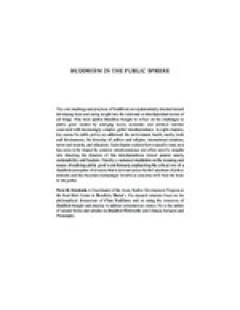
Buddhism in the Public Sphere
The core teachings and practices of Buddhism are systematically directed toward developing keen and caring insight into the relational or interdependent nature of all things. Hershock applies Buddhist thought to reflect on the challenges to public good, created by emerging social, economic, and political realities associated with increasingly complex global interdependence. In eight chapters, t…
- Edition
- Ed. 1
- ISBN/ISSN
- 9780415770521;9780415544436
- Collation
- -
- Series Title
- Routledge Critical Studies in Buddhism
- Call Number
- 294.307 HER b

Environmental Policy and Air Pollution in China
This book systematically analyzes how and why China has expectedly lost and then surprisingly gained ground in the quest to solve the complicated environmental problem of air pollution over the past two decades. Yuan Xu shines a light on how China’s sulfur dioxide emissions rose quickly in tandem with rapid economic growth but then dropped to a level not seen for at least four decades. Des…
- Edition
- -
- ISBN/ISSN
- 9780429452154
- Collation
- -
- Series Title
- -
- Call Number
- 370

The Literary History of the Igbo Novel
This book looks at the trends in the development of the Igbo novel from its antecedents in oral performance, through the emergence of the first published novel, Omenuko, in 1933 by Pita Nwana, to the contemporary Igbo novel. Defining "Igbo literature" as literature in Igbo language, and "Igbo novel" as a novel written in Igbo language, the author argues that oral and written literature in Af…
- Edition
- -
- ISBN/ISSN
- 9781003017455
- Collation
- -
- Series Title
- -
- Call Number
- 370
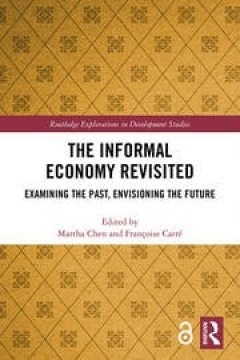
The Informal Economy Revisited
This landmark volume brings together leading scholars in the field to investigate recent conceptual shifts, research findings and policy debates on the informal economy as well as future challenges and directions for research and policy. Well over half of the global workforce and the vast majority of the workforce in developing countries work in the informal economy, and in countries around the…
- Edition
- -
- ISBN/ISSN
- 9780429200724
- Collation
- -
- Series Title
- -
- Call Number
- 370
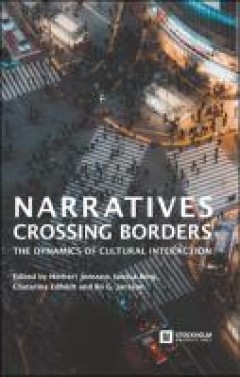
Narratives Crossing Borders: The Dynamics of Cultural Interaction
Which is the identity of a traveler who is constantly on the move between cultures and languages? What happens with stories when they are transmitted from one place to another, when they are retold, remade, translated and re-translated? What happens with the scholars themselves, when they try to grapple with the kaleidoscopic diversity of human expression in a constantly changing world? These a…
- Edition
- Ed. 1
- ISBN/ISSN
- 9789176351406, 9789176351413
- Collation
- 471
- Series Title
- Stockholm Studies in Culture and Aesthetics, 8
- Call Number
- 370 NAR n
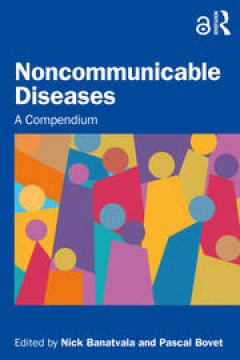
Noncommunicable Diseases
Noncommunicable Diseases: A Compendium introduces readers to noncommunicable diseases (NCDs) – what they are, their burden, their determinants and how they can be prevented and controlled. Focusing on cardiovascular disease, diabetes, cancer and chronic respiratory disease and their five shared main risk factors (tobacco use, harmful use of alcohol, unhealthy diet, physical inactivity and …
- Edition
- -
- ISBN/ISSN
- 9781003306689
- Collation
- -
- Series Title
- -
- Call Number
- 380
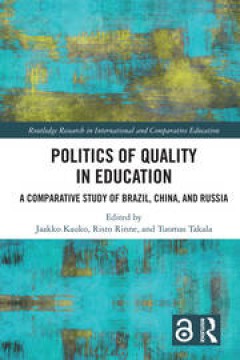
Politics of Quality in Education ; A Comparative Study of Brazil, China, and …
The question of quality has become one of the most important framing factors in education and has been of growing interest to international organisations and national policymakers for decades. Politics of Quality in Education focuses on Brazil, China, and Russia, part of the so-called emerging nations’ BRICS block, and draws on a four-year project to develop a new theoretical and methodologic…
- Edition
- -
- ISBN/ISSN
- 9780203712306
- Collation
- -
- Series Title
- -
- Call Number
- 370
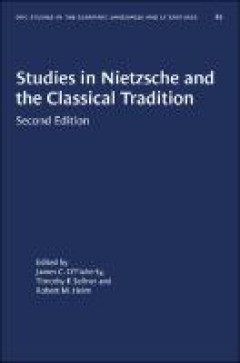
Studies in Nietzsche and the Classical Tradition
These fifteen essays deal with Nietzsche's view of various aspects of classical antiquity as compared to those of Augustine, Thomas Aquinas, Dante, Voltaire, Winkelmann, Hamann, Goethe, Schiller, Heine, Byron, the "fin de siècle" Decadents and others. An introductory essay by classical scholar H. Lloyd-Jones plus two essays on Nietzsche's aesthetics by W. Kaufmann and K. Weinberg round out the…
- Edition
- -
- ISBN/ISSN
- 9781469658100
- Collation
- -
- Series Title
- -
- Call Number
- -

Argentina's Economic Reforms of the 1990s in Contemporary and Historical Pers…
Why has Argentina suffered so much political and economic instability? How could Argentina, once one of the wealthiest countries in the world, failed to meet its potential over decades? What lessons can we take from Argentina's successes and failures? Argentina’s economy is - irresistibly - fascinating. Argentina's economic history - its crises and its triumphs cannot be explained in pu…
- Edition
- -
- ISBN/ISSN
- 9781315669625
- Collation
- -
- Series Title
- -
- Call Number
- 370
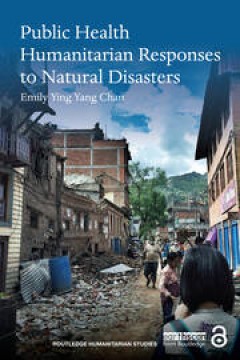
Public Health Humanitarian Responses to Natural Disasters
The pressure of climate change, environmental degradation, and urbanisation, as well as the widening of socio- economic disparities have rendered the global population increasingly vulnerable to the impact of natural disasters. With a primary focus on medical and public health humanitarian response to disasters, Public Health Humanitarian Responses to Natural Disasters provides a timely critica…
- Edition
- -
- ISBN/ISSN
- 9781315667218
- Collation
- -
- Series Title
- -
- Call Number
- -
 Computer Science, Information & General Works
Computer Science, Information & General Works  Philosophy & Psychology
Philosophy & Psychology  Religion
Religion  Social Sciences
Social Sciences  Language
Language  Pure Science
Pure Science  Applied Sciences
Applied Sciences  Art & Recreation
Art & Recreation  Literature
Literature  History & Geography
History & Geography